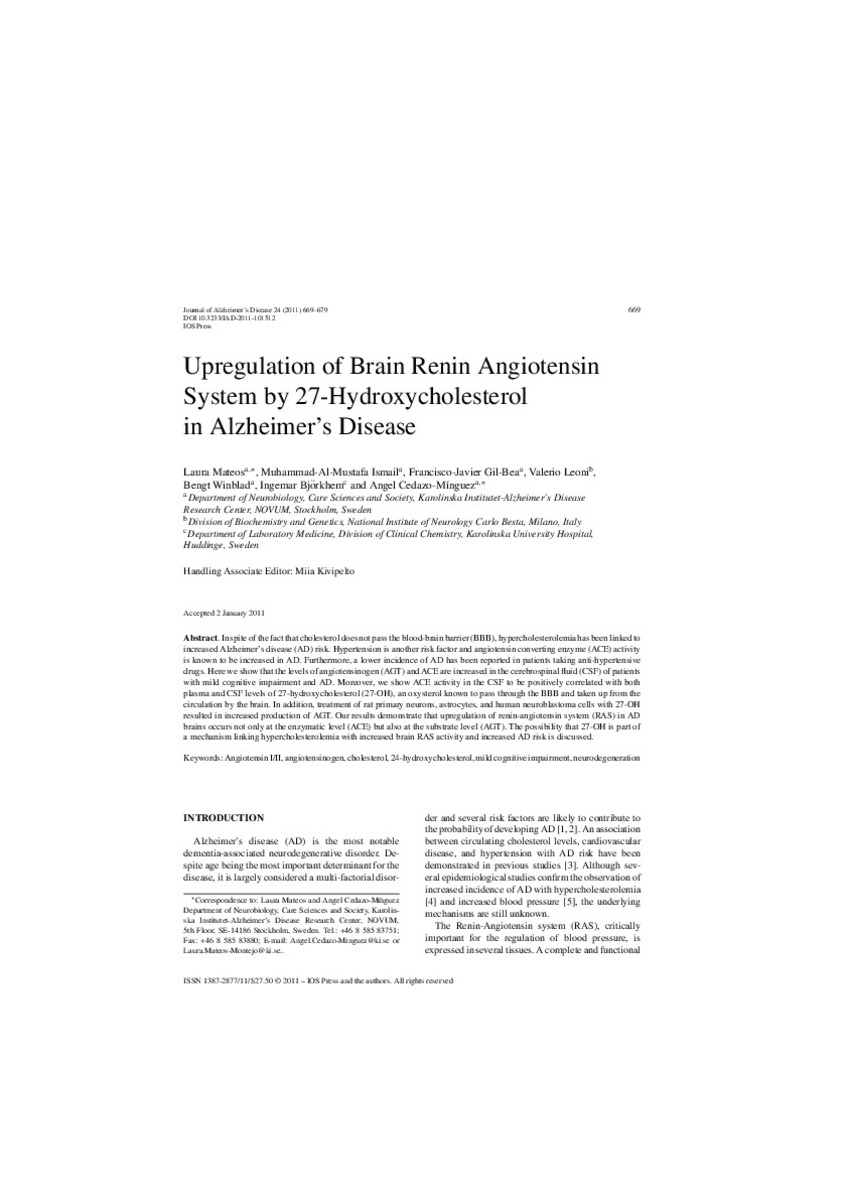Upregulation of brain renin angiotensin system by 27-hydroxycholesterol in Alzheimer's disease
Palabras clave :
Angiotensin I/II
angiotensinogen
cholesterol
4-hydroxycholesterol
mild cognitive impairment
neurodegeneration
Fecha de publicación :
2011
Cita:
Mateos L, Ismail MA, Gil-Bea FJ, Leoni V, Winblad B, Björkhem I, et al. Upregulation of brain renin angiotensin system by 27-hydroxycholesterol in Alzheimer's disease. J Alzheimers Dis 2011;24(4):669-679.
Aparece en las colecciones:
Estadísticas e impacto
0 citas en

0 citas en

Los ítems de Dadun están protegidos por copyright, con todos los derechos reservados, a menos que se indique lo contrario.







